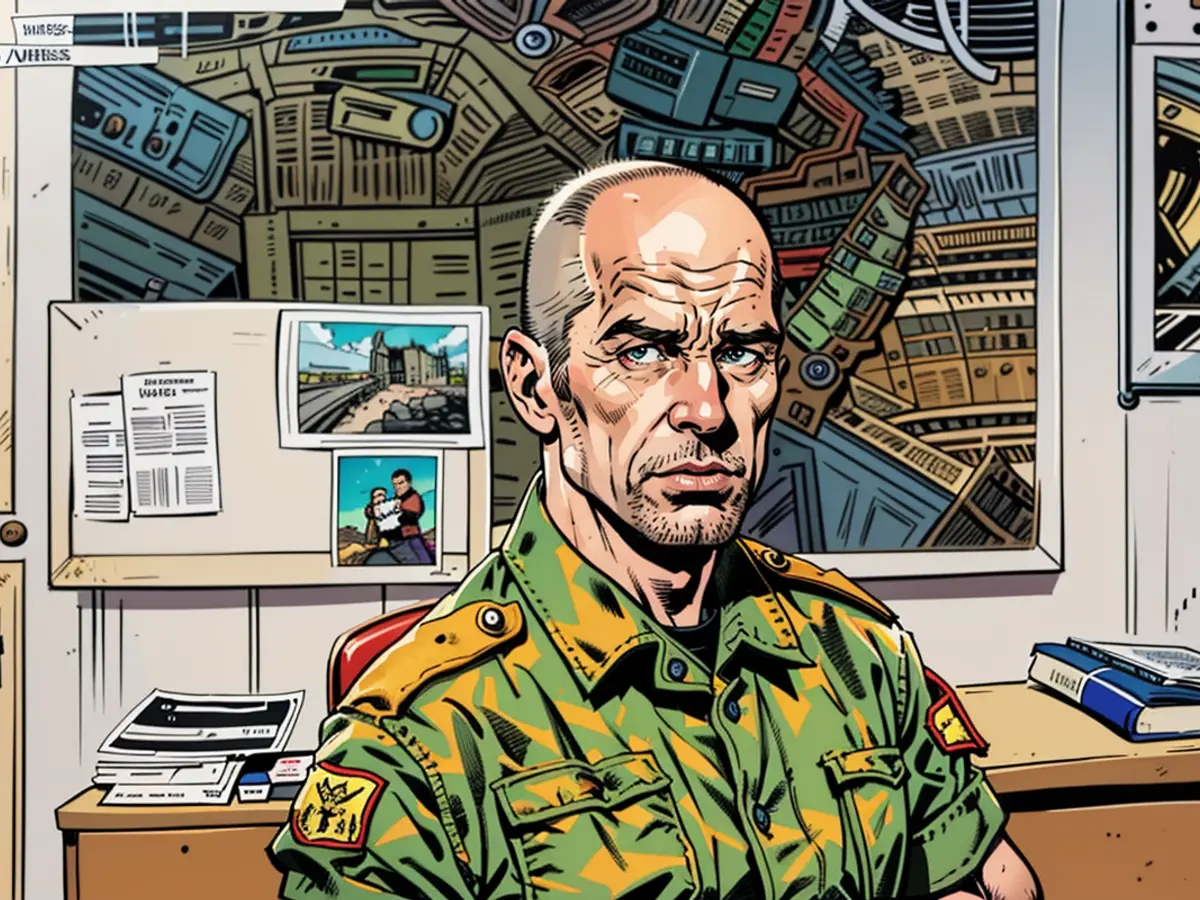Regardless of your aspirations to become an elite combatant, preparations and skills notwithstanding, you may encounter an overwhelming defeat.
ntv.de: Mr. Reisner, last week Ukrainian forces were still defending Wuhledar, but they have now had to abandon the mining town, which was under Russian siege. Mr. Reisner explains to ntv.de how this withdrawal affects the situation in Ukraine during the war.
Markus Reisner: The 72nd mechanized brigade had to withdraw. Rumors on Ukrainian networks suggest they suffered substantial losses. In my opinion, Wuhledar serves as a prime example of the impact of a prolonged war. A year and a half ago, the city was highly successful in repelling Russian attacks. However, after enduring an unrelenting barrage of artillery, cruise missiles, and now also bombs, Wuhledar has reached this point. This strategic stronghold, this critical stronghold, was essentially decimated.
So, the brigade has been engaged in non-stop defensive battles for the city for a year and a half?
Wuhledar bore a striking resemblance to Bachmut in terms of its symbolic significance throughout its defensive struggle. If you recall, the Ukrainian narrative went like this: Our army is experiencing heavy casualties, but compared to that, the Russian casualties are significantly higher. Bachmut played a crucial role as a bulwark where the Russians wore themselves down until it could no longer be held. The same holds true for Wuhledar.
So, the city was the bulwark in the south. If we examine the front there, it forms a semi-circular arc from Zaporizhzhia to Kupiansk. From this arc, there is a crucial pivot point, and it lies exactly at Wuhledar. From there, the Ukrainians could potentially threaten Russian supply lines north of Mariupol. These supply lines - road connections and railway lines - are crucial for the Russian troops. They were constructed only after the Kerch Bridge was attacked so frequently. Wuhledar served as a thorn in these Russian positions, from which the supply routes could be threatened.
And the Ukrainians nearly lost this effective thorn in January 2023?
During the first Russian winter offensive, Wuhledar was under heavy pressure. The primary reason behind this was the Russians' intense effort to force Ukraine to deploy its reserves, effectively removing them from the planned Ukrainian summer offensive starting in early June. However, Ukraine resisted this bait. They saw the Russians, who were putting immense pressure on Wuhledar, only to exhaust themselves in these attacks. Instead, Ukraine held back its reserves, as they aimed to utilize them during the summer offensive.
Then, instead of fresh, fully-equipped reserves, the "lesser squad" held Wuhledar during that period?
You cannot label it as the "lesser squad." The 72nd mechanized brigade was also an elite unit that had been stationed there for years. They had an intimate knowledge of every nook and cranny in that area. If the reserves had been deployed then, they would have been the second string. However, the 72nd mechanized brigade bore the brunt of the fight alone for a year and a half, displaying remarkable resilience against the Russians, who had two brigades pinned down and suffered hefty casualties.
Were the Ukrainians forced to vacate the city?
Ukrainian troops were compelled to retreat to avoid complete annihilation. The Russians pushed forward and attempted to surround the city with a dual pincer movement. The brigade held out for a while but struggled against the relentless Russian advance. Desperate pleas for help also circulated online, with soldiers questioning: Why are we still here? What are we defending?
The 72nd Brigade could no longer replicate its previous success.
The units were so depleted that the previous year's success could not be replicated. I refer to this as the drama of attrition, and many still fail to comprehend it. Units have been involved in this war for 955 days and have gradually worn down, reaching a point where they can no longer fight. Today marks day 956 of this invasion war. If Ukraine does not receive assistance or means to counter guided bombs or target enemy artillery with counter-battery fire, even the best fighters will be overwhelmed through attrition over time. That's the logic of attrition warfare.
Concerning those videos you mentioned earlier, it almost seems like it has also been a relief for the Ukrainian troops to finally accept that Wuhledar could not be defended.
Absolutely not, because, at the operational and tactical level, this space had significance as a thorn that jutted into Russian positions. The withdrawal has taken on the role of a delaying action in depth.
How far have the Ukrainians retreated?
Only a few kilometers. The challenging part here is the terrain, which is extremely flat. This automatically puts the side that occupies the few high points, especially the mines and mining towns, in a better position. Furthermore, what has been observed repeatedly comes into play: The quality of the positions further back, in the subsequent defensive line, is significantly inferior to those that have been occupied so far. One must remember that Wuhledar was a frontline position that developed over eight years.
Did Wuhledar possess great operational significance for the situation at the front?
On the operational level, but not on the strategic, there's minimal impact from recent events on the battlefield in sustaining capabilities for prolonged warfare. Little frontline actions carry immediate strategic weight. Strategically significant, however, are attacks on vital infrastructure. For instance, if Ukraine were to lose power, continuing the war would be highly challenging.
Expanding our focus beyond Wuhledar: What potential dangers loom for other battlefronts?
Another encirclement is brewing west of Newelske. Following the capture of Ukrainsk, the Russians advanced south of the city. There's a lake there, and the Russians are pushing towards it, along a railway line, heading for Wowtscha. The Russian army is just two to three kilometers away from this lake, and controlling the railway line would trap a significant Ukrainian force. If Kiev's troops can't evacuate their soldiers in time, this could pose an even greater challenge than Wuhledar did earlier. The conflicts at Kharkiv and Kursk remain in a state of equilibrium.
Whispers of an impending attack on Saporishshya circulate. Although the nuclear power plant has been under Russian control for some time, the city itself hasn't. Is this a threat?
Over the past few months, Russian forces have regained territories lost by Ukraine during its summer offensive. Now, rumors surface of potential plans for an attack on Saporishshya. While there are plausible grounds for these speculations, no actual preparations have begun. It mirrors the situation in the spring, northwest of Kyiv, where continuous reports of an impending attack in Sumy surfaced, only for a Russian attack on Sumy to never materialize. Instead, Ukraine launched an offensive on Kursk.
The Ukrainians have spread these rumors to maneuver troops to the area undetected and spark curiosity: What are they up to there?
After the fact, this is how the situation was analyzed. The Ukrainians used the threat of a Russian offensive to justify deploying troops to the region. In reality, they had assembled forces for an attack on Russian soil, at Kursk. While this doesn't necessarily mean the same occurs in Saporishshya, it's wise to consider such rumors in context.
Conversation between Frauke Niemeyer and Markus Reisner
The withdrawal of the 72nd mechanized brigade from Wuhledar impacts the overall situation in The Donbass significantly. Wuhledar, being a strategic stronghold in the south, served as a crucial point to threaten Russian supply lines north of Mariupol.
The city's loss to Russian forces marks a significant setback for Ukraine in its efforts to counter Russian advancements in The Donbass region.









